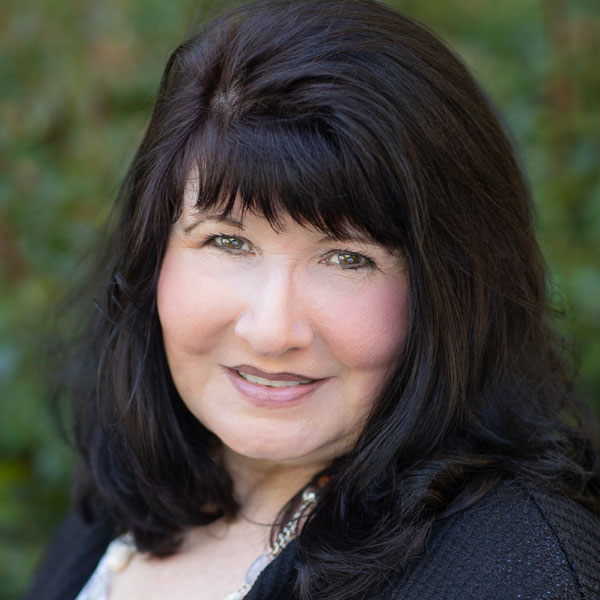If you have a family member who is addicted to alcohol, you are probably dealing with many fears and frustrations every day. Alcohol dependence is a disease that affects not just the addict, but the entire family.
Alcohol addiction creates complex problems within the family system. Often family members are too close to the problems to understand what can be done. As family members seek help for themselves, the situation can dramatically improve. Whether the alcoholic chooses to get help or not, you can receive hope and healing through Christian counseling.
Alcohol Dependence
 To understand the serious nature of alcoholism, it can be helpful for family members to look at the facts about alcohol dependence. To heal from this difficult problem, you must recognize its significant impacts. It is a disease that progresses over time, slowly destroying the drinker and his or her family.
To understand the serious nature of alcoholism, it can be helpful for family members to look at the facts about alcohol dependence. To heal from this difficult problem, you must recognize its significant impacts. It is a disease that progresses over time, slowly destroying the drinker and his or her family.
Alcoholism develops in three major stages. The first stage is when a person drinks beyond the daily recommended limits, which is one drink for women or two drinks for men. This type of alcohol dependence often starts as binge drinking on weekends or holidays that eventually turns into an everyday habit.
The second stage is when the drinker must consume more alcohol before feeling the effects since the body builds up a tolerance over time. Drinkers at this stage may be high functioning and not “act drunk” even if their blood alcohol levels are over the legal limit. Their daily drinking habits may begin to interfere with relationships, work, or school.
The third stage is when the alcoholic’s body can no longer tolerate the heavy alcohol load and begins breaking down. Many serious and life-threatening conditions result from long-term alcohol abuse. These include heart attack, stroke, diabetes, metabolic syndrome, cirrhosis of the liver, kidney failure, and more.
Alcohol dependence forms over a long period, often taking years to reach the final stage. However, family members are negatively affected by the drinking at every stage of the growing dependence. The alcoholic will not feel the need to get help while still entrenched in denial. However, family members can take steps against the alcoholic’s destructive behavior to effect change.
Alcoholic Families
There are several roles people unwittingly play as family members of an alcoholic. All of them enable the drinker’s behavior and prolong problems. Even though family members may not be aware of these dynamics, they take a toll on each person’s well-being. Family members can suffer from depression, anger, anxiety and other negative emotions due to alcoholism.
 By setting appropriate boundaries against the alcoholic’s behavior, you may be able to force him or her to face the facts about the addiction. For example, if you stop making excuses for your husband when he is too drunk to work, he may experience the pain of being reprimanded by his boss.
By setting appropriate boundaries against the alcoholic’s behavior, you may be able to force him or her to face the facts about the addiction. For example, if you stop making excuses for your husband when he is too drunk to work, he may experience the pain of being reprimanded by his boss.
Another example is refusing to clean up vomit after your loved one gets sick from drinking. These types of boundaries help your loved one take responsibility for his or her actions and learn how those actions affect family members.
As alcohol dependence increases, the alcoholic will feel more guilty and ashamed. However, he or she will not express these negative feelings in an appropriate way. Instead, the alcoholic is likely to project the guilt and shame onto family members in the form of anger and criticism.
If you are regularly subjected to a drinker’s verbal and emotional abuse, your self-worth may be taking a hit. With a counselor’s help, you need to strengthen your resolve to weather the powerful storms that come along with loving an alcoholic family member.
Emotional Problems in Alcoholic Families
It’s common for loved ones of alcoholics to deal with fear every day. You may worry that the alcoholic will overdose, become unemployed, become injured, get arrested, lose driving privileges, act out sexually, become violent, or hurt someone else when drunk.
 As an alcoholic spouse, you may fear that your children will follow in the footsteps of their alcoholic parent. You may dread others in your church or community finding out the truth about your family problems. These fears can feel overwhelming and paralyzing. You may feel as if you are carrying a heavy load around each day.
As an alcoholic spouse, you may fear that your children will follow in the footsteps of their alcoholic parent. You may dread others in your church or community finding out the truth about your family problems. These fears can feel overwhelming and paralyzing. You may feel as if you are carrying a heavy load around each day.
However, healing is possible if you seek help from a caring Christian counselor. You can find freedom from your fears when you take the right steps toward alcohol recovery. Even if your alcoholic loved one refuses to get treatment, you can find freedom from your fears by attending regular counseling appointments. Your treatment program will offer practical strategies for transforming your thoughts and behaviors, even if the addict resists change.
Counseling for Alcoholic Families
There is a much greater chance for total recovery when the entire family receives counseling. For example, if the father is an alcoholic, the mother and her children should attend counseling sessions to heal from the hurt and modify behaviors, whether the father chooses to attend or not. While this approach may seem counterintuitive, since the drinker is the one who really needs help, it is often the key to lasting change.
As soon as family members reach out for help, the alcoholic knows his or her days of the same old patterns are numbered. The alcoholic innately senses he or she will no longer run the show and will face external pressure to change. This can reverse the negative family behavior cycles and create an opportunity for a breakthrough.
However, most alcoholics don’t give up their addiction without a fight. Often, as you get stronger through therapy, the alcoholic will double down his or her toxic methods of control or criticism. You can easily fall back into your old patterns of denial, enabling, people-pleasing, and appeasing unless you are strengthened through regular meetings with your therapist.
We also recommend that you seek group therapy in addition to individual or family therapy, such as with Al-Anon or Celebrate Recovery. Regular meetings with groups of people who have suffered from and triumphed over alcoholism will boost your resolve. Combined with one-on-one therapy, you will have real hope for change. The longer you commit to these types of therapies in tandem, the greater your chances of overcoming alcoholism.
Your loved one may not stop drinking just because you get healthy, but the odds of his or her recovery improve when you take the first steps. We can also help you stage an intervention, a formal ultimatum for your loved one to enter an alcohol treatment center. This is a step that must only be attempted with professional expertise, and we are experienced in helping others quit drinking after an intervention.
Recovery from Alcohol Dependence
 Alcohol counseling is essential for an alcoholic’s recovery. Every alcoholic keeps drinking for a reason, and typically this is due to unresolved hurt, fears, frustrations, or injustices. By addressing the roots of the behavior with a counselor’s help, the alcoholic can recover. However, this is only effective if the alcoholic is ready to fully engage in treatment. You cannot force someone to receive treatment, but you can make it available.
Alcohol counseling is essential for an alcoholic’s recovery. Every alcoholic keeps drinking for a reason, and typically this is due to unresolved hurt, fears, frustrations, or injustices. By addressing the roots of the behavior with a counselor’s help, the alcoholic can recover. However, this is only effective if the alcoholic is ready to fully engage in treatment. You cannot force someone to receive treatment, but you can make it available.
If your loved one is ready to accept treatment, we offer several treatment programs. Again, we recommend that you first get help for yourself as a family member, then watch and wait to see what differences occur in your relationship to the alcoholic. If you see signs that the alcoholic is ready and willing, we will accommodate his or her needs.
It’s important for you to understand that full recovery for an alcoholic normally looks like a life overhaul. The alcoholic must establish different patterns for social activities and place fail-safes for drinking triggers. He or she must also find healthier ways to deal with the guilt, shame, and negative emotions in the family. It can take years of starting and stopping before an alcoholic becomes fully sober. That’s why it’s so important for you to get help yourself.
Are you ready to take the first step in your own recovery journey? Contact us at Seattle Christian Counseling. Our caring Christian counselors are ready to help you form new, hopeful paths.
“Walking on the Beach”, Courtesy of Sarah Medina, Unsplash.com, CC0 License; “Embrace”, Courtesy of Jakob Owens, Unsplash.com, CC0 License; “Watching the Sunset”, Courtesy of Cathy Mu, Unsplash.com, CC0 License; “Daddy and Daughters”, Courtesy of Baylee Gramling, Unsplash.com, CC0 License






